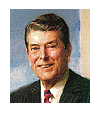 |
||
 |
||
Gallery
|
 Minitel, France 1980 |
 Ronald Reagan Actor becomes President, 1980 |
 TRS-80 1980 |
 Voyager I 1980 |
 Cats on Broadway 1981 |
 IBM PC 1981 |
 Donkey Kong 1981 |
 E.T. 1982 |
 Macintosh 1984 |
 Roger Rabbit 1988 |
